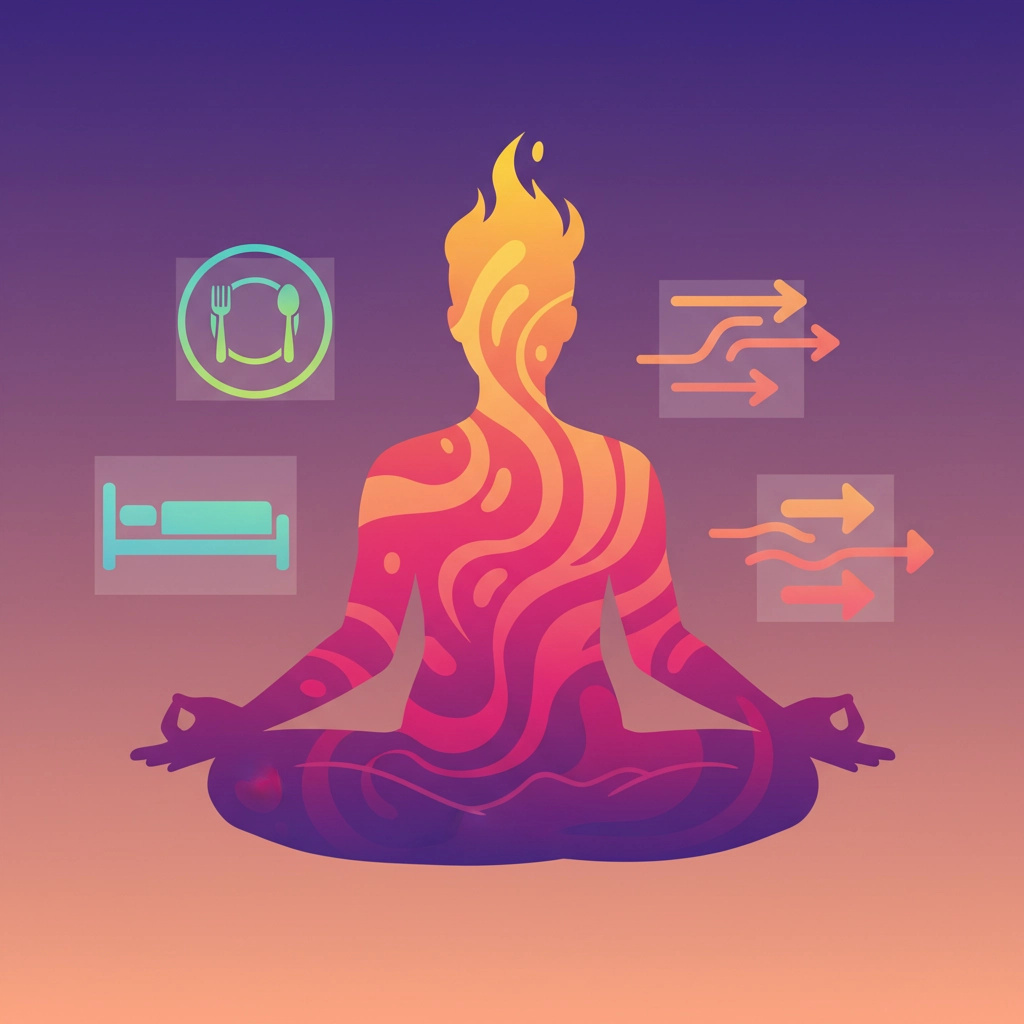You know that feeling when your to-do list seems to multiply overnight, your phone won't stop buzzing, and you can't remember the last time you felt truly calm? That crushing weight pressing down on your chest? That's overwhelm, and it's quietly stealing your mental energy before you even realize what's happening.
Here's the thing: overwhelm isn't just about being busy. It's what happens when the demands on your mental resources exceed your capacity to handle them. And unlike physical tiredness that a good night's sleep can fix, mental exhaustion requires a completely different approach.
The good news? You don't have to wait until you're completely burned out to take action. With the right framework, you can protect your mental energy and reclaim control over your life, starting today.
Why Your Mental Energy Matters More Than You Think
Think of mental energy like your phone battery. Every decision you make, every task you tackle, every worry you entertain drains a little more power. The problem is, most of us are running multiple apps in the background without ever closing them down.
When your mental battery hits that critical 10%, everything becomes harder. Simple decisions feel impossible. Your patience evaporates. Even enjoyable activities start feeling like work.
But what if you could learn to protect that battery from draining so quickly in the first place?

The Four-Pillar Framework for Mental Energy Protection
After working with countless women struggling with overwhelm, I've developed a framework that actually works. It's not about adding more to your plate, it's about being strategic with what's already there.
Pillar 1: Create Unshakeable Boundaries
Boundaries aren't walls, they're gates with you as the gatekeeper. Every "yes" you give to one thing is an automatic "no" to something else, often your own well-being.
Start with these boundary basics:
Time boundaries: Set specific work hours and stick to them. Yes, even if there's more to do. You'll accomplish more tomorrow when you're fresh than you will tonight when you're running on fumes.
Energy boundaries: Learn to say "I need to think about that" instead of agreeing to everything immediately. Give yourself 24 hours before committing to new requests. sofi rain
Emotional boundaries: You don't need to absorb everyone else's stress. Practice phrases like "That sounds really challenging" instead of immediately offering to fix everyone's problems.
Pillar 2: Work With Your Natural Rhythms
Your energy isn't constant throughout the day: so why are you trying to power through everything like a machine?
Pay attention to your natural energy patterns for a week. When do you feel most alert? When does your brain feel foggy? Most people have their peak mental energy in the morning, but you might be different.
Once you know your patterns:
- Schedule your most demanding tasks during energy peaks
- Use low-energy times for routine tasks like email or organizing
- Plan rest periods when your energy naturally dips

Pillar 3: Build Your Mental Energy Foundation
You can't pour from an empty cup: but you also can't fill a cup with holes in it. These foundation practices plug those energy leaks:
Sleep: This isn't negotiable. Aim for 7-9 hours and try to keep consistent sleep and wake times, even on weekends. Your brain literally cleans itself during sleep: skip it, and you're starting tomorrow with yesterday's mental clutter.
Nutrition: Those energy crashes aren't random. Balance your meals with protein, healthy fats, and fiber to keep your blood sugar stable. Meal prep on Sundays so you're not making food decisions when you're already mentally drained.
Movement: Even 20 minutes of walking can reset your mental state. Exercise doesn't have to mean gym sessions: dancing in your kitchen counts too.
Pillar 4: Master Stress Recovery
Stress isn't the enemy: chronic stress without recovery is. Build these reset practices into your day:
Micro-breaks: Set a timer every 90 minutes to step away from what you're doing. Even two minutes of deep breathing or looking out the window helps.
Mindfulness moments: You don't need hour-long meditation sessions. Practice noticing five things you can see, four you can hear, three you can touch, two you can smell, and one you can taste.
Evening wind-down: Create a 30-minute routine that signals to your brain it's time to shift gears. This might include dimming lights, gentle stretching, or journaling.

The Advanced Strategies
Once you've got the basics down, these strategies can take your mental energy protection to the next level:
Realistic Goal Setting
Break large projects into smaller, manageable tasks. Your brain rewards you with a little dopamine hit each time you complete something, so give it plenty of opportunities to celebrate.
Instead of "Reorganize entire house," try "Spend 15 minutes decluttering kitchen counter." The momentum from small wins builds naturally.
Technology as Your Ally
Use apps and tools to reduce decision fatigue:
- Automate routine tasks where possible
- Use calendar blocking to protect your high-energy time
- Set phone boundaries with "Do Not Disturb" schedules
- Try brain-dumping apps to get mental clutter out of your head
The Power of Connection
Isolation amplifies overwhelm. Schedule regular check-ins with friends, join supportive communities, or consider group coaching programs where you can share experiences with women facing similar challenges.
Sometimes just knowing you're not alone in this struggle is enough to lighten the mental load.
The Mindset Shift That Changes Everything
Here's what most people miss: overwhelm isn't actually about having too much to do. It's about feeling like you have no control over what's happening to you.
The most powerful thing you can do is remember your agency. You are not a victim of your circumstances: you're the author of your response to them.
This doesn't mean toxic positivity or pretending everything's fine. It means recognizing that even in difficult situations, you have choices. You can choose how to spend your energy, what to prioritize, and when to ask for help.

Your 7-Day Implementation Plan
Don't try to implement everything at once: that's just another form of overwhelm. Start here:
Days 1-2: Track your natural energy patterns and identify one boundary you need to set.
Days 3-4: Focus on sleep consistency and add one 5-minute mindfulness practice.
Days 5-6: Implement micro-breaks and practice saying "I'll get back to you" before agreeing to requests.
Day 7: Reflect on what's working and choose one additional strategy to add next week.
When to Seek Additional Support
Sometimes overwhelm is a signal that you need more than self-help strategies. If you're experiencing persistent sleep problems, anxiety that interferes with daily life, or feeling hopeless despite your efforts, it might be time to explore professional support.
Remember, asking for help isn't failure: it's intelligence.
Your Mental Energy Is Worth Protecting
Your mental energy is finite and precious. Every day you spend running on empty is a day you're not fully present for the life you're building.
The framework isn't about perfection: it's about progress. Start where you are, use what works, and give yourself permission to prioritize your mental well-being.
Because here's the truth: you can't pour from an empty cup, but you also can't fill other people's cups if yours has holes in it. It's time to patch those holes and start treating your mental energy with the respect it deserves.
Your future self: the one who feels calm, capable, and in control: is counting on the choices you make today. What's one small step you can take right now to protect your mental energy?

